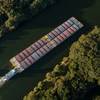Noon Fuel Reports Don't Cut It Says NAPA
NAPA asserts that traditional noon reports don’t give the quantity or quality of data needed by owners in modern shipping.
NAPA, a maritime software house for ship design and operations point out that bunker fuel readings for most international vessels are taken as daily ‘noon reports’ - collected onboard and send to the shipowner on a daily basis during a vessel’s voyage. However, with bunker fuel costs at sustained record levels and environmental legislation pertaining to emissions of Greenhouse Gases (GHGs), Sulphur Oxide (SOx), Nitrogen Oxide (NOx) now in force, many ship owners and management companies have come under more scrutiny from charterers, authorities and other stakeholders, such as investors, to provide more accurate measurement of daily bunker fuel consumption and emissions levels.
According to NAPA research, owners, managers and operators with large numbers of vessels under their control, are increasingly turning to electronic operational solutions that automatically communicate with shore-based offices as frequently as every ten minutes. This gives those with the ultimate responsibility ‘real time’ awareness of a vessel’s fuel consumption, location, the weather conditions it is facing, the speed it is travelling at and further data that can help to ensure that these vessels are operating to the safety and efficiency standards expected of them.
While there are commercial and safety benefits having more accurate and ‘real time’ data, the latest condition monitoring software has the potential to enable greater effectiveness in the legislative drive to reduce GHG emissions from shipping.
Papers were presented at both IMO MEPC meetings in 2012 on the subject of monitoring, while the European Commission has declared its intention to pursue mandatory monitoring, reporting and verification of vessel fuel consumption. Industrial installations and the aviation industry already must meet requirements for measurement and reporting and the technology is also there for this to be accomplished by the shipping industry.













